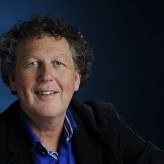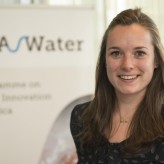The Gold Standard: Exploring the added value of the Dutch knowledge platforms
Learning review five Knowledge Platforms, including VIA Water
The Dutch Knowledge Platforms (of which VIA Water is one) are said to ‘have gold in their hands’. A recently launched learning review provides insight into the achievements and added value of the five Knowledge Platforms since their kick-off three years ago.
The Platforms were established following the Kennisbrief that was sent to Parliament in 2011 by the then Dutch State Secretary for Development Cooperation, Mr Ben Knapen. The Platforms have been structured around five strategic themes for development cooperation: food and nutrition security; sexual and reproductive health and rights; security and rule of law; water for development (VIA Water); and inclusive development policies. You can read more about VIA Water's origins as a Knowledge Platform here.
While the Knowledge Platforms are diverse in their organization and strategy, the reviewers identify common “gems”. These include the multi-stakeholder approach that lies at the core of their institutional strategy. The Platforms do not operate in a vacuum, they are positioned in a context of diverse actors (ministries, NGOs, research institutes, consultancies, businesses, etc.). This shows that their approach is not installed to fulfil only the needs of the Dutch government, but a meaningful way to take stock of multiple perspectives in order to achieve a greater good. Other achievements mentioned in the learning review are the convening power of the Platforms, and their unique ability to address emerging and contested issues.
From the onset, and after a careful consultation process, VIA Water decided to focus on innovation in practice (initiated by African partners) over academic research. Thematically, the focus of the programme is on 12 pressing water needs in urban settings in seven African countries. According to the Learning Review, policy officers at the Ministry of Foreign Affairs consider the chosen focus an example of good foresight as urban areas gain increasingly attention on international development agendas.
The Platforms have so far been most successful in knowledge creation and exchange, while knowledge use is still the hardest nut to crack. But the foundations are in place to get ‘knowledge to work’ for the stakeholders involved. As for VIA Water, in 2017 even more effort will be put in these processes: gathering knowledge from the project owners, increasing contact between them and stimulating knowledge exchange within the VIA Water (online) community and beyond. To start an exploration of the case material and lessons learned, a postdoc researcher will be employed starting in 2017 by VIA Water and the Centre for Frugal Innovation in Africa.
Internationally, the Dutch approach to knowledge brokering is well-received. International stakeholders have increasingly expressed interest to learn more about the added value of such an innovative approach to the development sector.
You can find the complete learning review “The Gold Standard: Exploring the added value of the Dutch knowledge platforms” in the attachment below.

